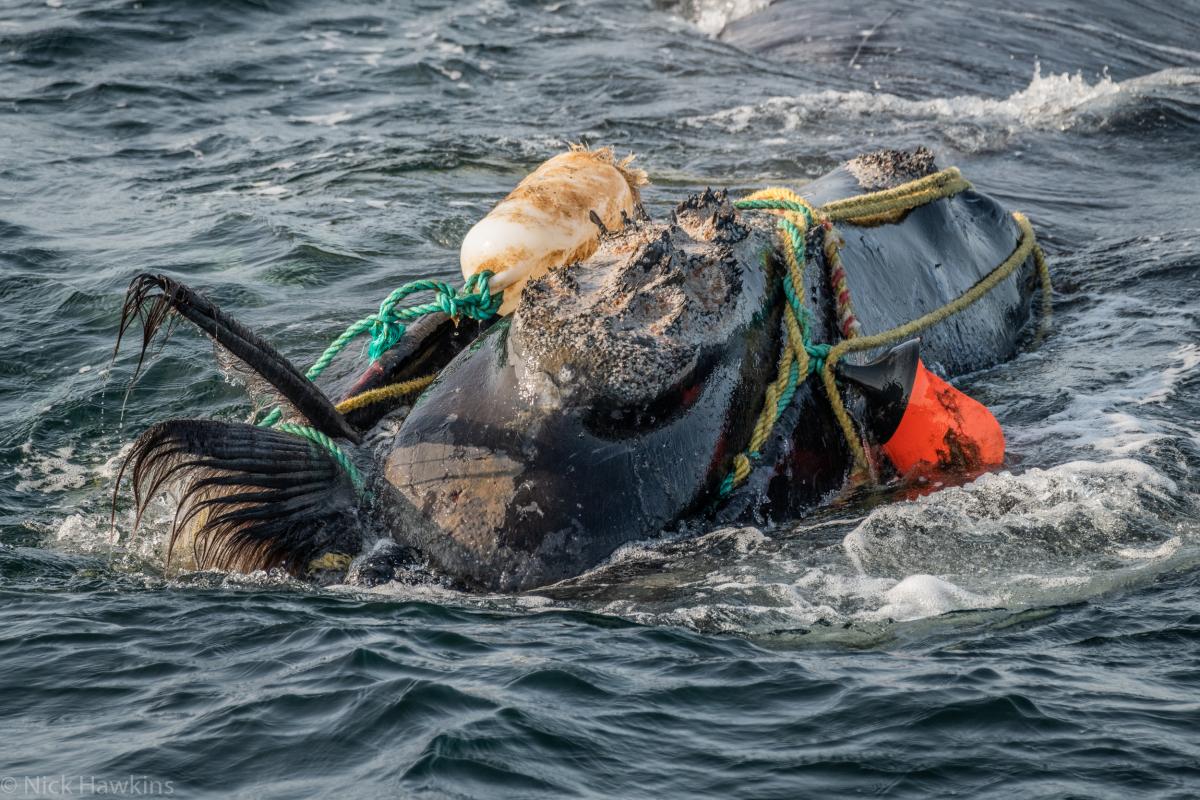November 11, 2019
Together we can save the North Atlantic right whale from extinction
Estimated reading time: 0 minutes
Last month, a 40-year-old North Atlantic right whale was found dead in Long Island, New York. Snake Eyes, named for the two bright white scars on the front of his head, was last seen severely entangled in fishing gear in the Gulf of St. Lawrence in August. His death marks the tenth right whale lost this summer.
With only about 400 of them left, this species is on the brink of extinction. Any death is one too many.
Earlier this year, Oceana launched a binational campaign in Canada and the U.S. to save North Atlantic right whales. We know it’s going to take a concerted effort to protect these animals, and we need your help.
Although once abundant, the right whale population was intensely targeted in the nineteenth and early twentieth century by commercial whalers. The population slowly grew after commercial whaling was internationally banned in 1935. However, population numbers have begun falling at an alarming rate over the past few years.
Entanglement in fishing gear used to catch lobster, snow crab and bottom-dwelling fish is one of the threats to this species’ survival. Whales become entangled in and can drag these fishing ropes for hundreds of kilometres, impacting their ability to swim, mate and find food. The weight of these ropes can sever fins and tails or even cut into bone, causing death by drowning or deep cuts that can lead to life-threatening infections.
 Adding to the problem, this slow-moving, difficult-to-see species is vulnerable to collisions with fast-moving ships, leading to ship strikes being another major threat to their survival. The blunt force trauma of a ship strike or being struck by fast-moving propellers often causes injury or death.
Adding to the problem, this slow-moving, difficult-to-see species is vulnerable to collisions with fast-moving ships, leading to ship strikes being another major threat to their survival. The blunt force trauma of a ship strike or being struck by fast-moving propellers often causes injury or death.
As climate change warms our oceans some right whales are found in increasing numbers in the Gulf of St. Lawrence. In Canada right whales are directly intersecting with busy shipping lanes and fishing grounds. As whales haven’t historically been in this area there weren’t existing protection measures in place.
As highlighted in our binational report, the fishing industry must shift toward gear and practices that are less likely to endanger marine species. And, when right whales are present, effective fisheries closures must be put in place. These changes all rely on improved fisheries monitoring and public tracking of fishing vessels.
Ship strikes can and must also be avoided if this species is to survive. Speed restrictions are necessary when right whales are present. In order for the right whale population to recover, it is imperative that the government supports research, monitoring, risk reduction and response networks. With these changes, all avoidable deaths caused by entanglements and ship strikes can be prevented.
Oceana’s Canadian and U.S. teams are campaigning to change policies and stop every preventable death for North Atlantic right whales. We need your help to change this tragic story before it is too late. Please add your voice to our petition here.
For more information and details on Oceana Canada’s report, fact sheets and other materials, visit Oceana.ca/RightWhaletoSave.

